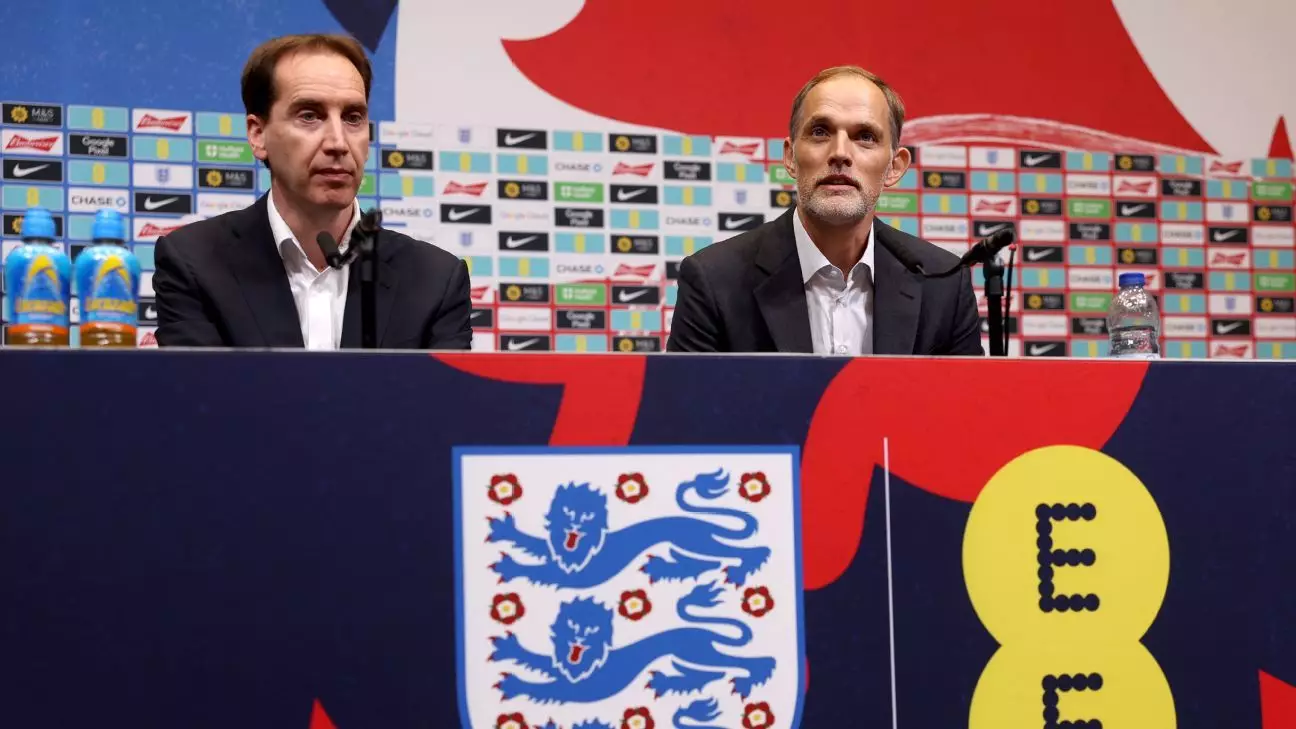The appointment of Thomas Tuchel as the head coach of England’s national football team marks a significant shift in leadership following Gareth Southgate’s tenure. Tuchel, a seasoned manager with a wealth of experience, will officially take up his duties on January 1. His previous successes in club football, particularly with Chelsea and Bayern Munich, have positioned him as a prime candidate to elevate the national side’s performance. His focus now shifts not merely to tactics and player management but also to assembling a highly capable backroom staff to support his vision.
In an effort to create a cohesive and effective support system, Tuchel appears to be turning back to his past affiliations. The reported move to bring in Anthony Barry, formerly part of Chelsea’s coaching ensemble, underlines Tuchel’s commitment to a familiar approach. Barry’s transition from the Portugal national team to join Tuchel is indicative of the trust and synergy they shared at Chelsea. The importance of a reliable assistant cannot be overstated, as he will play a crucial role in implementing Tuchel’s strategies and maintaining team morale.
Moreover, sources indicate ongoing discussions between the Football Association (FA) and Chelsea regarding James Melbourne, the head of performance analysis. This interest from Tuchel reflects not only an appreciation for Melbourne’s skills but also a broader intent to cultivate a staff that complements his coaching philosophy. With a keen eye on data-driven performance metrics, Melbourne could enhance the analytical approach vital for national team preparation.
Maintaining a Focused Team Environment
In his recent press conference, Tuchel expressed a desire to maintain a compact coaching unit. This decision reflects his understanding of the complexities involved in national team management, where cohesion among staff can influence outcomes significantly. By keeping the backroom staff small, Tuchel aims to foster clear communication and a united front which can enhance the players’ adaptation to new ideas and philosophies.
Chelsea’s current manager, Enzo Maresca, has signaled that the London club will not impede the ambitions of those who wish to pursue opportunities with Tuchel. Such an open approach not only facilitates professional development but also illustrates a commitment to mutual respect within the football community. This ethos can only benefit individual careers and strengthen the relationship between clubs and national teams.
As Tuchel embarks on this new journey, he faces the challenge of quickly integrating his ideas into the fabric of the England team. With the upcoming international fixtures looming large on the horizon, every addition to his backroom staff must be made with strategic foresight. The dynamics of player relationships, team morale, and on-field performance will be shaped by these early appointments. Furthermore, the success of the national team plays a crucial role in shaping the future of English football on the global stage.
As Thomas Tuchel looks to establish himself as the head coach of England, his strategic recruitment from Chelsea shows his intent to create not just any staff, but one aligned with his vision for success. Balancing experience with fresh ideas, Tuchel’s tenure may very well define a transformative chapter in England’s footballing history.

